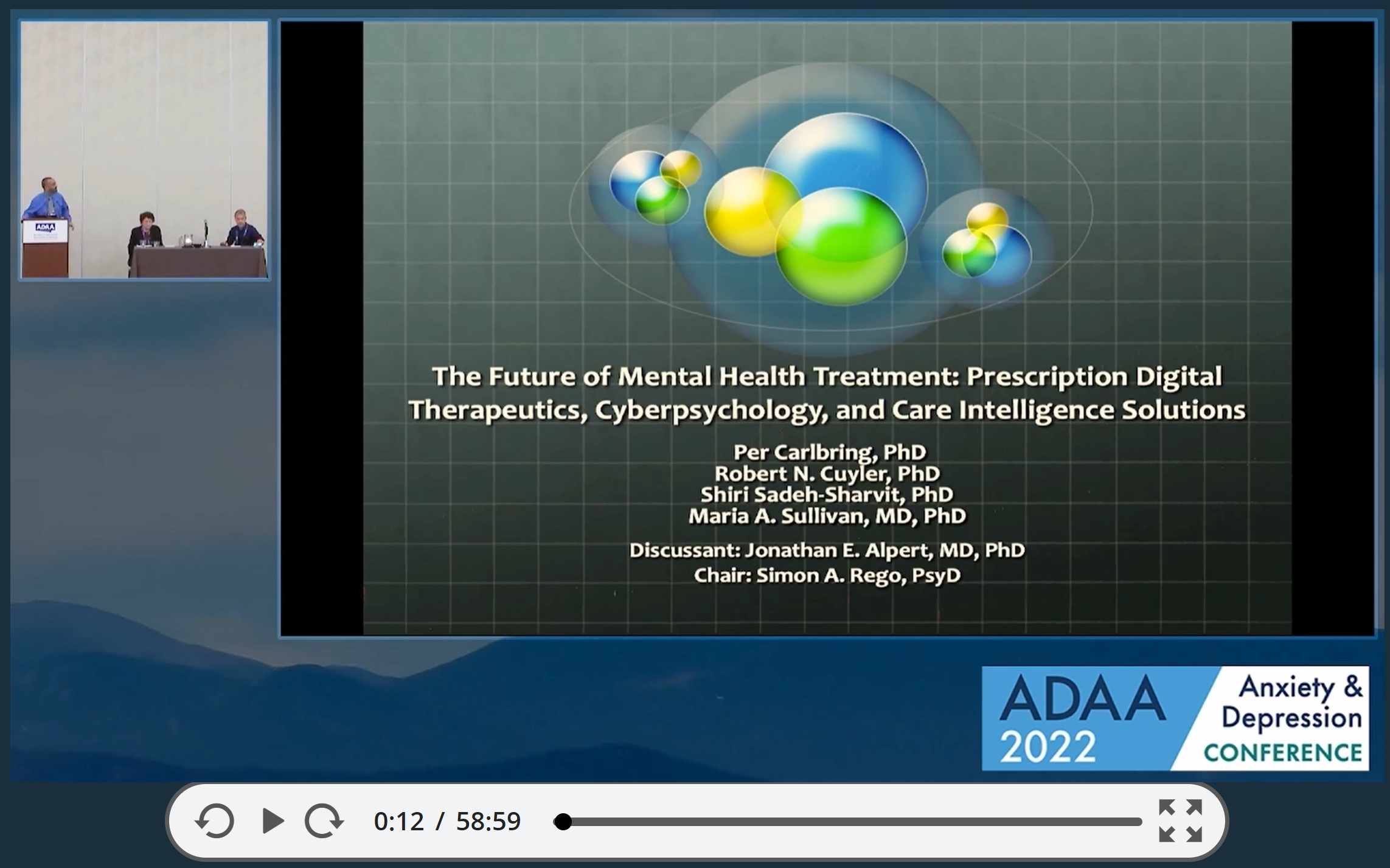Despite the fact that a wealth of data has been generated supporting psychotherapy and medications as efficacious and effective treatments for many mental health problems, there remain challenges and limitations in both (e.g., cost, dissemination, access, etc.). As a result, psychological disorders remain prevalent in our society and have a profound negative impact on our quality of life, physical and social well-being, and economic productivity. Fortunately, the field has been evolving to take advantage of the “Fourth Industrial Revolution” – a digital revolution that has been occurring since the middle of the last century characterized by a fusion of technologies that is blurring the lines between the physical, digital, and biological spheres – to search for new and novel opportunities to improve our treatment outcomes. These include the movement towards prescription digital therapeutics (i.e., software-based treatments designed to directly treat psychological disorders), cyberpsychology (study of the mind within the context of human-computer interaction), and care intelligence solutions (artificial intelligence-driven platforms powered by therapy-specific voice analysis and natural-language processing to generate actionable clinical insights). With this in mind, we had a roundtable discussion at the ADAA. We were four experts in these emerging areas and discussed – and demonstrated – how these and other key developments have the potential to fundamentally alter the way we provide mental health treatments and, in so doing, greatly improve the quality of life for patients around the world. The session concluded with a summary on insights gleaned by a leading psychiatrist, along with his hypotheses on how these developments will impact the future of psychotherapy, the field of psychiatry, and the entire mental health landscape in the 21st century.
